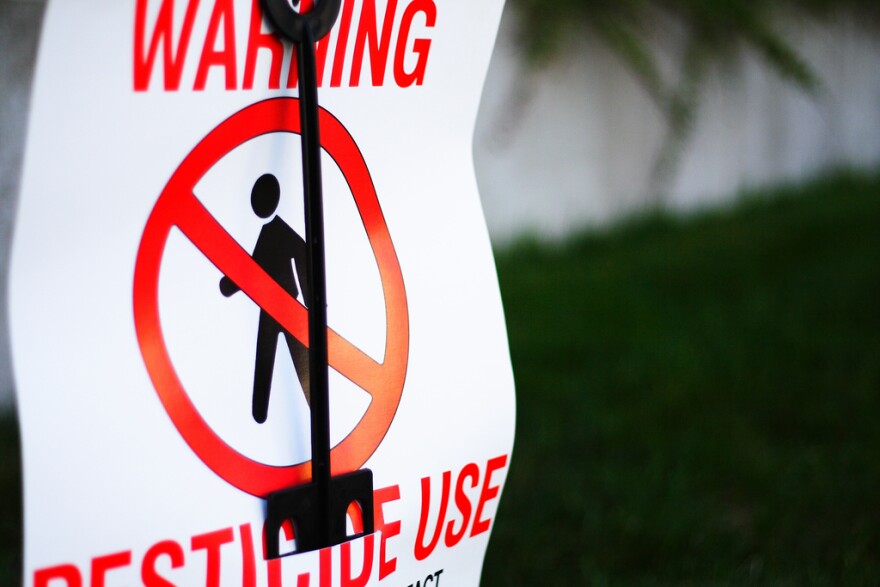A group of eleven Kaua‘i citizens recently released a draft report about pesticides on the island. The Joint Fact-Finding Study Group was convened by the County and the State Department of Agriculture—and represented viewpoints from both sides of the controversy, at a cost of $100,000 dollars. The findings seemed definitive, but they have not put an end to the pesticide debate on the Garden Isle. HPR contributing reporter Scott Giarman has more from Kaua‘i.
The question the Study Group was trying to answer was clearly spelled out in its mission statement: “Are there detectable and measurable human or environmental health impacts on Kauai associated with pesticide use in genetically modified crop production?”
The answer they came up with seems equally unambiguous: “There is no statistically significant evidence that shows causality between seed company pesticide use and harms to Kauai’s flora and fauna.” The study also found that seed companies were responsible for less than 25% of the restricted-use pesticides on the island, rather than the vast majority as critics had claimed.
Yet critics see the report differently. Fern Rosenstiel of Kapahi says the report shows, “we’re not lying. Lawmakers can’t stand idly by while our community is poisoned by pesticides.” That’s because while the study found that there is no link between pesticide use and health problems on Kauai, it did identify eleven of 20 medical conditions existing on Kauai that could occur when there is pesticide exposure. It also states that because of clear warnings on pesticide labels, Hawaii leaders should be more attentive to pesticide issues.
Kauai seed companies say they use genetic modification and other hybridization methods to boost crop growth for an extensive variety of growing conditions worldwide. They add that they employ hundreds of people and contribute millions of dollars to the local economy annually.
The report doesn’t dispute any of that, but it also suggests better data collection and environmental testing are needed, as well as a consistent policy about buffer zones around areas where pesticides are used. It also calls for $3-million dollars in state funding to implement the report’s recommendations.




